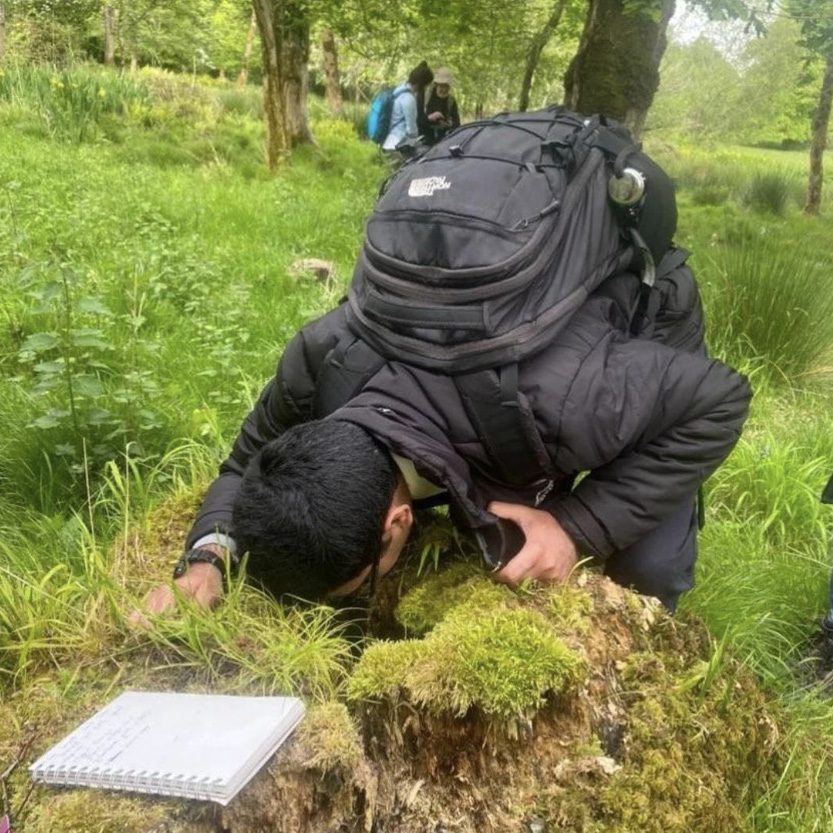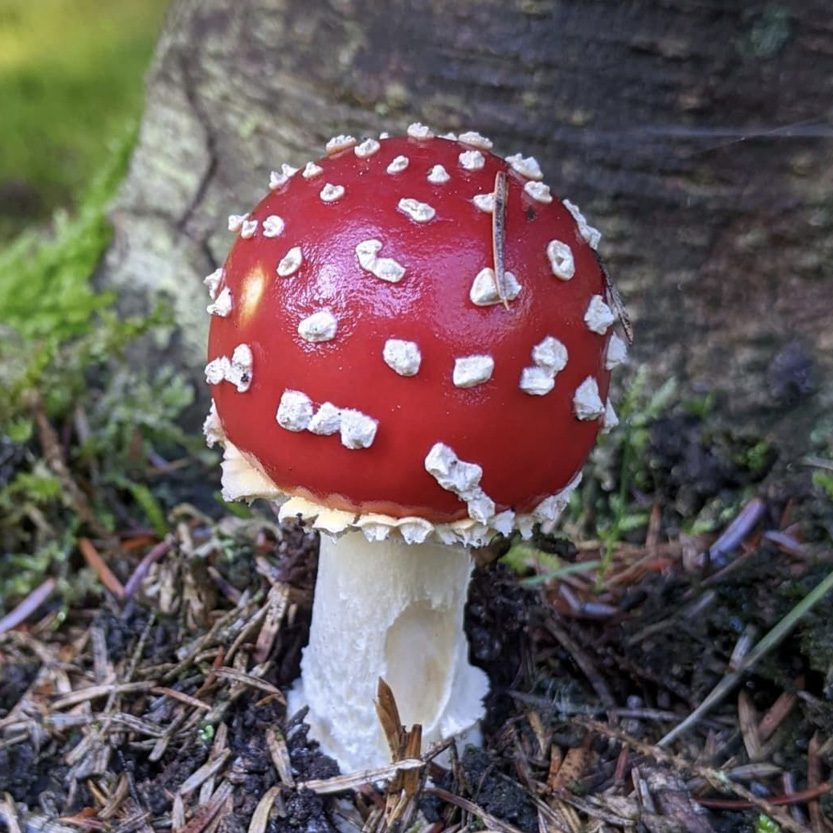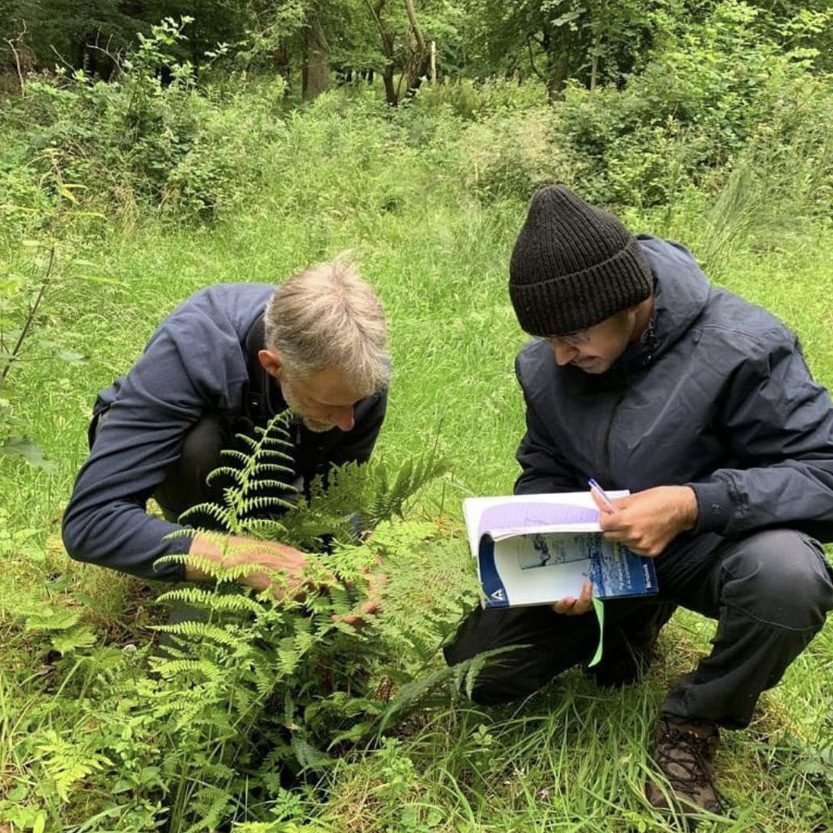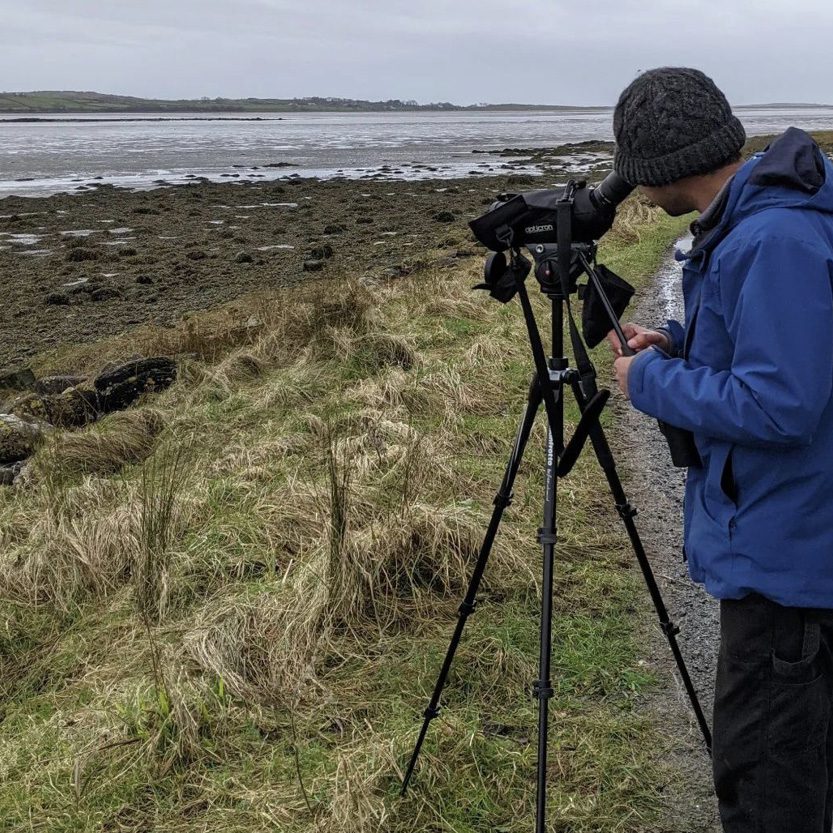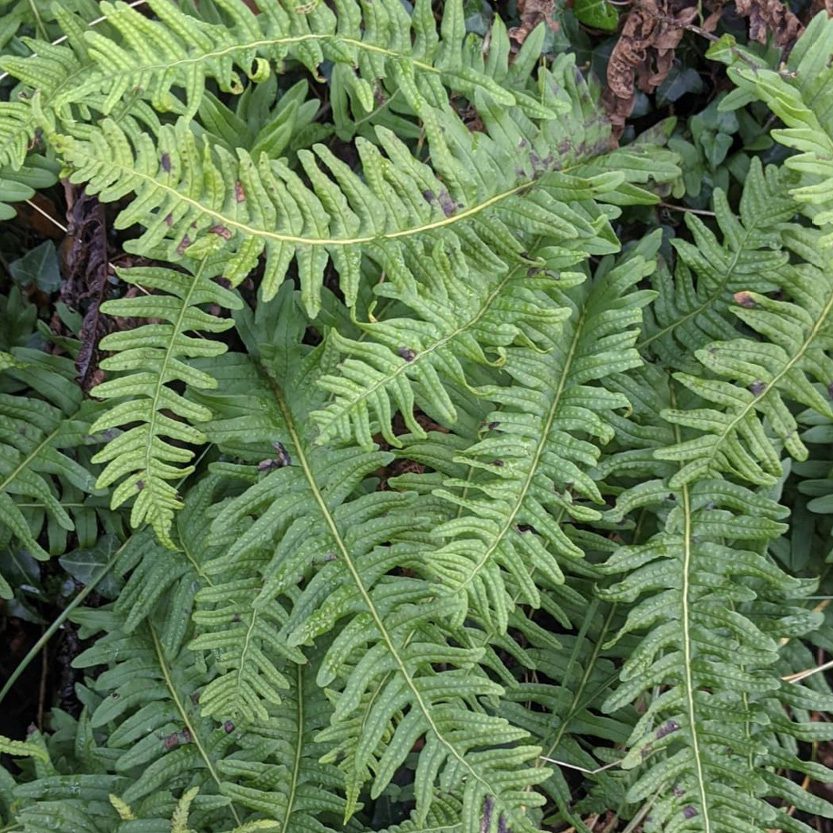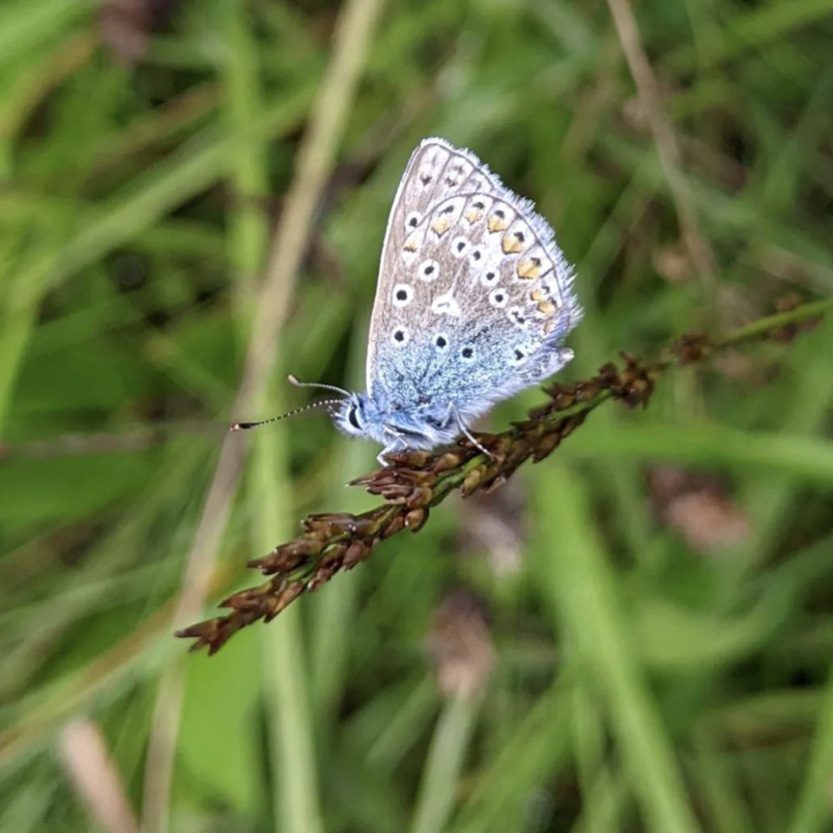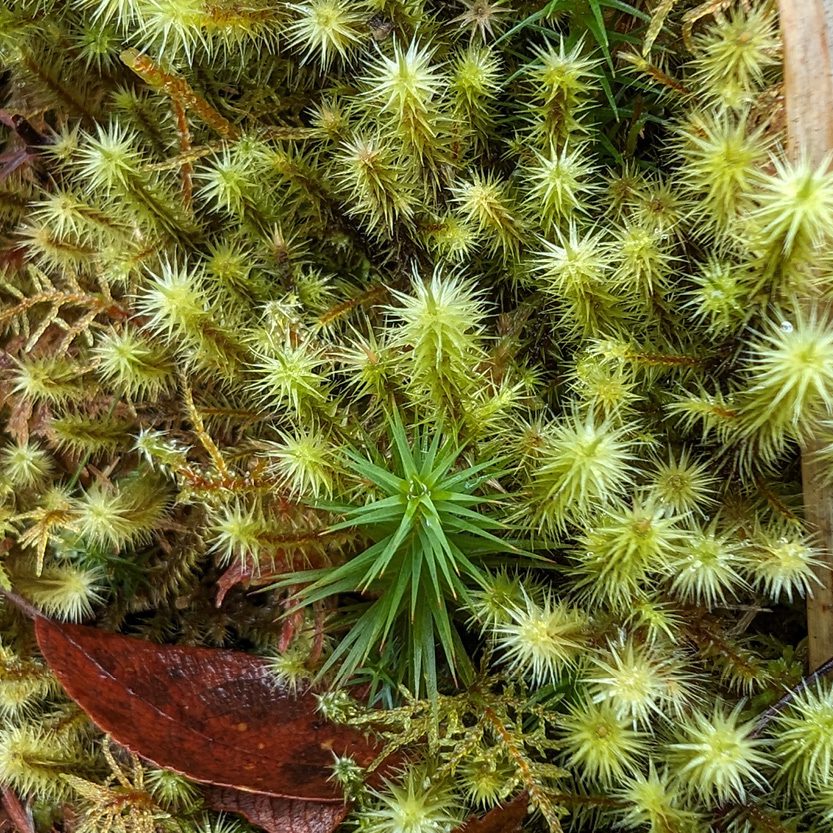
Rudraksh discusses his passion for Ecology and his typical day working as an Ecologist. Rudraksh graduated with a BSc (H) in Botany, MSc Environmental Science and MSc in Biodiversity and Conservation. He joined MKO in 2021.
What inspired you to pursue a career in Ecology?
I have been fascinated with plants since I was a kid. I used to love gardening and visiting my grandparents in Ranikhet (a town in Uttarakhand, India which is surrounded by the Himalayas). The walks in the nearby forests were very enjoyable and we used to record and identify a number of plants with the help of my grandfather who was a very good botanist. After finishing school, I decided to pursue a bachelor’s degree in Botany. Later, I pursued an MSc in Environmental Sciences and out of all the modules I studied, Ecology was my favourite because it dealt with the relationship of plants and animals with the environment. In order to get a better understanding of this field, I decided to do another MSc degree in Biodiversity and Conservation from Trinity College, Dublin and it was an amazing experience because the course comprised modules and assignments specific to ecology such as Taxonomy, systematics and ID skills, Practical conservation skills, Environmental Policy to name a few. We also went out on several field trips to the Burren, Wicklow and Johannesburg, South Africa. During these trips, we learnt the different ways of surveying flora, fauna, insects etc and got an insight into how plants, habitats and animals are conserved. My dissertation thesis focused on Understanding the Semi-Natural Woodland Diversity at Dunsany Estate in Co Meath (for which I surveyed 7 woodlands and 3 plantations). It was while doing this vegetation survey and from the excellent guidance of my dissertation guide Prof Stephen Waldren (who has been an inspiration to me) that I decided to pursue a full-time career as an Ecologist.
Can you describe your typical day as an Ecologist?
A typical day can be desk-based and involve working on Appropriate Assessments, Natura Impact Statements or travelling to different sites in Ireland to conduct habitat/walkover surveys (woodlands, bogs, heaths, grasslands are some of the habitats that I survey regularly) and keeping an eye out for any mammal signs, tracks, birds and invasive species. Before going out on site, myself and my colleagues will set up a meeting to discuss the survey and do a desk study which involves reading more about the habitats, flora and fauna on site from the Fossitt, NPWS, NBDC websites etc. This helps us in getting a better idea of any protected/invasive species and habitats that we have to look out for. We will also prepare maps of the site on QGIS and Field Maps.
What types of projects and ecosystems are you currently working on?
Currently, I am working on the Coillte Eco Servies 2020-2024 project at MKO for a wide variety of forestry operations including clear-fell and reforestation, thinning and Continuous Cover Forestry (CCF). This involves preparing Preliminary Screening Reports and Natura Impact Statements for Coillte. I also supervise a team of three graduate ecologists, review their reports and address any doubts that they might have. Apart from this, I help out the Ecology team with surveys, identifying plants and report writing (Appropriate Assessments, Natura Impact Statements and Ecological Impact Assessments).
How would you describe the culture at MKO?
The culture at MKO is excellent. Everyone that I have met at MKO has been very helpful and friendly and I couldn’t have asked for a better company to start my career as an ecologist with. All employees are encouraged to pursue what they love and training is provided in-house or from experts in their fields based in Ireland or abroad. There are two big events every year – the Summer Barbeque and the Christmas Party which are a good get-together among colleagues and a number of sports, team building activities are organised during these events. The MKO Sports and Social Committee also organises pub quizzes, island trips, running clubs, beach cleaning, etc. Every Monday morning there are baked goods in the canteen (baked by an employee) and it’s a good way to meet up with friends and colleagues.
What do you enjoy most about your role at MKO?
I enjoy being out on-site and conducting surveys the most. This is mainly because, on every survey, I find a few species that I have never recorded before (my best find was a fern called Polypodium x mantoniae which is a hybrid of the native Polypodium vulgare and Polypodium interjectum, that I had recorded with Cathal Bergin, MKO Project Ecologist). Each habitat is unique and has plants adapted to it, therefore visiting different habitats allows you to record a large number of plants. I also enjoy learning about birds, mammals and aquatic flora and fauna from my colleagues during these surveys. Currently, I am trying to specialise in fern and bryophyte identification. To improve my plant identification skills and become a better botanist, I try to attend as many training courses conducted by the Botanical Society of Britain and Ireland and the British Bryological Society as I can. Working on the bryophyte herbarium with Mairead Kavanagh from the MKO ecology team was a lot of fun too!
What advice do you have for someone aspiring to pursue a career in Ecology with MKO?
A passion for wildlife, plants and conserving nature is needed to pursue a career in Ecology with MKO. A good understanding of environmental laws, Habitats Directive, EIA, etc is also essential. Staying active on Linkedin and connecting with like-minded people, and employers and publishing a research paper or two on your thesis can be a great help too. Try to join as many societies like BSBI, CIEEM, BirdWatch Ireland etc as you can to build up your skills. This will give you the opportunity to get into the field and conduct surveys be it botanical, bat, marine, habitat etc, because surveys are an integral part of this job. I’d also recommend reading nature books as you can learn about conservation, rewilding, habitat management etc from them.



